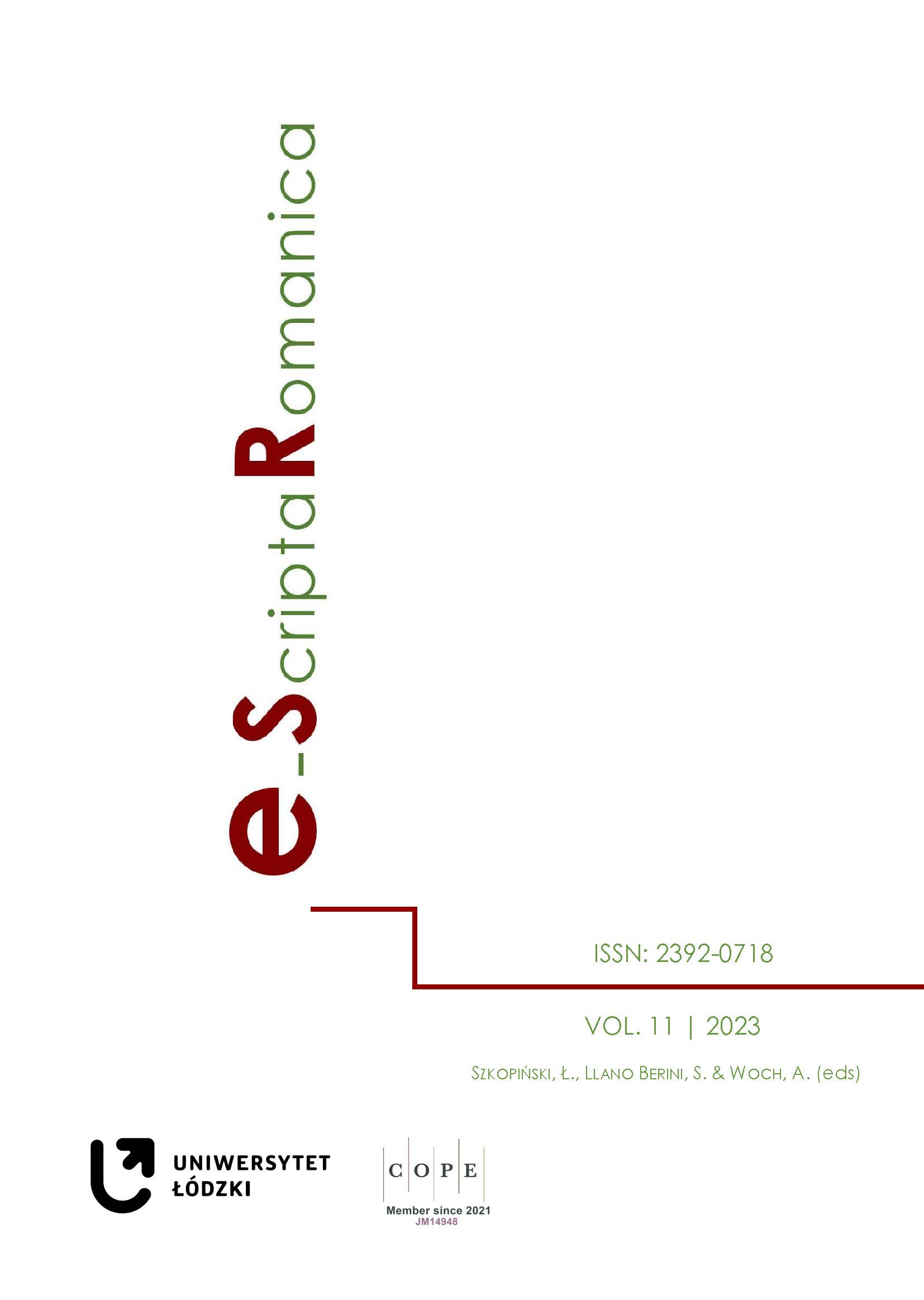Un monde futur, un monde potentiel. La perspective des animaux sur l’humanité dans Demain les chats de Bernard Werber
DOI:
https://doi.org/10.18778/2392-0718.11.09Palabras clave:
Bernard Werber, personnage animal, perspective animale, apocalypse, futurResumen
Le roman Demain les chats (2016) de l’écrivain français Bernard Werber favorise une analyse de la perspective animale dans le récit. Comprendre la manière de présenter les protagonistes félins ainsi que les liens entre les animaux et les humains peut permettre des conclusions sur un monde futur potentiel dans lequel l’humanité a échoué lors de la transition entre l’Anthropocène et une apocalypse, tandis que les animaux deviennent à la fois les victimes de la catastrophe et le nouveau groupe dominant. D’abord, il faut établir le contexte et fournir des informations de base sur l’auteur, son œuvre et le roman abordé, en ce compris ses protagonistes félins. Dans l’étape suivante, au centre de l’analyse se trouve la façon de dépeindre les personnages des chats, caractérisée à l’aide d’une classification focalisée sur la relation entre les animaux et les humains. Cela mène à l’observation du caractère hybride des personnages et de la perspective adoptée par l’auteur pour les décrire. Enfin, l’analyse aboutit à la caractérisation du monde observé par les animaux, une réalité dystopique dans laquelle l’apocalypse marque la fin de l’Anthropocène et le changement dans le rapport de forces existant.
Citas
BARATAY, É. (2017). Biographies animales. Des vies retrouvées. Paris : Éditions du Seuil.
Google Scholar
BLOOM, H. (2009). Introduction. In Bloom, H. (ed.), George Orwell’s Animal Farm. New York : Infobase Publishing, pp. 1-2.
Google Scholar
DOI: https://doi.org/10.1093/acprof:oso/9780195373035.003.0001
HOUOT, L. (2021). « Même sur une île déserte je continuerais à écrire » : Bernard Werber adapte Demain les chats en BD et fête les 30 ans de ses Fourmis. FranceInfo Culture. https://www.francetvinfo.fr/culture/livres/roman/meme-sur-une-ile-deserte-je-continuerais-a-ecrire-bernard-werber-adapte-demain-les-chats-en-bd-et-fete-les-30-ans-de-ses-fourmis_4628133.html [23/03/2023].
Google Scholar
MILCENT-LAWSON, S. (2019). Un tournant animal dans la fiction française contemporaine ? Pratiques, pp. 181-182. http://journals.openedition.org/pratiques/5835 [30/03/2023].
Google Scholar
DOI: https://doi.org/10.4000/pratiques.5835
PATRI, A. (2021). Les conseils de Bernard Werber pour communiquer avec ses animaux de compagnie. Europe 1. https://www.europe1.fr/culture/les-conseils-de-lecrivain-bernard-werber-pour-communiquer-avec-ses-animaux-de-compagnie-4043080 [24/03/2023].
Google Scholar
SIMSONE, B. (2012). The Animal World of Fantasy Literature. Comparative Studies, 4(1), pp. 173-180.
Google Scholar
VELITCHKO, I. (2018). Les personnages animaux dans la littérature – Esquisse de typologie et de fonctions. Fabula / Les colloques. La parole aux animaux. Conditions d’extension de l’énonciation. http://www.fabula.org/colloques/document5396.php [27/03/2023].
Google Scholar
DOI: https://doi.org/10.58282/colloques.5396
WERBER, B. (2016). Demain les chats. Paris : Éditions Albin Michel.
Google Scholar
ZYLINSKA, J. (2014). Minimal Ethics for the Anthropocene. Londres : Open Humanities Press.
Google Scholar
DOI: https://doi.org/10.3998/ohp.12917741.0001.001
Descargas
Publicado
Cómo citar
Número
Sección
Licencia

Esta obra está bajo una licencia internacional Creative Commons Atribución-NoComercial-SinDerivadas 4.0.











